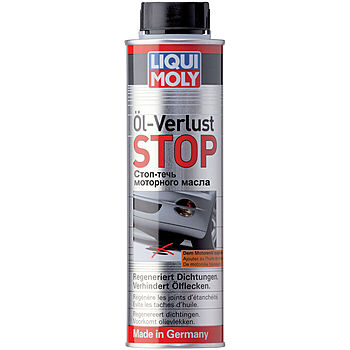
Stop leaking engine oil. Does the additive work?
Content
How do engine sealants work?
If leaks through the pan gasket or valve cover seal are relatively easy to eliminate, then with the crankshaft and camshaft oil seals, not everything is so simple. To replace the gaskets, it is enough to dismantle the pan or valve cover and install new seals. Replacing the front oil seals will at least require partial dismantling of attachments and the gas distribution mechanism. And to replace the rear crankshaft oil seal, you also have to dismantle the gearbox.
To understand how the so-called oil stop leaks work, consider the design of oil seals and the principle of their operation.
Structurally, oil seals usually consist of three elements:
- a metal frame that serves to maintain the shape of the stuffing box and at the same time plays the role of a mounting structure for contact with an external static surface (cylinder block housing or cylinder head);
- rubber layer to create tightness;
- a compressing spring which directly presses the jaw against the shaft and enhances the sealing effect of the stuffing box.
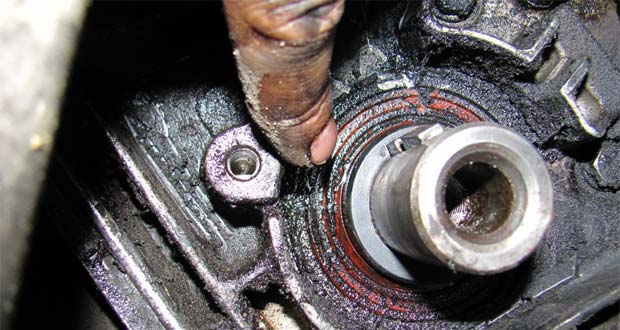

Over time, even the highest quality seals dry out and lose elasticity. The spring force is reduced. And gradually, an oil leak forms between the shaft and the working surface of the sponge that has lost its elasticity.
All additives of the stop-leak category have one thing in common: they soften the rubber and partially restore elasticity to this material. Under the action of the spring, the sponge is again pressed against the shaft, and the oil flow stops. Additionally, these additives improve viscosity.
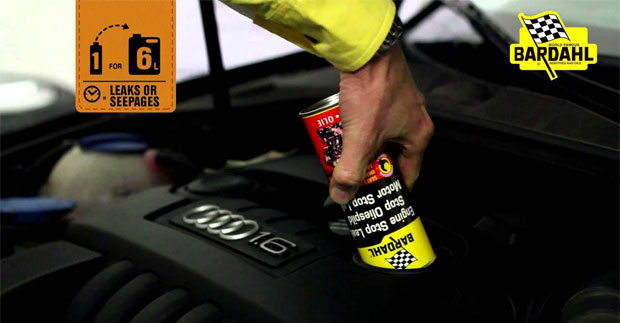

Popular compositions and features of their application
Today, two additives to stop oil leaks are the most popular on the Russian market. Let's take a look at these ingredients.
- Hi-Gear HG Quite a powerful composition, which in some cases is able to stop even old leaks. Produced in compact bottles of 355 ml. Recommended for use on fresh oil. The entire volume is poured through the oil filler neck on a warm engine. Stops the leak after 1-2 days with intensive use of the car. If the car is driven a little, then the sealing process can be delayed for up to one week.
- Liqui Moly Oil-Verlust-Stop and Pro-Line Oil-Verlust-Stop. The difference between the "regular" composition and the Pro version is only in volume. In a bottle of Oil-Verlust-Stop 300 ml, Pro-Line - 1 liter. The additive is poured into a warm engine at the rate of 100 grams of the composition per 1,5 liters of oil. The 300 ml bottle is used all at once, regardless of the volume of oil in the engine. The flow through the seals stops after 600-800 km of run.
Both remedies help with commendable effectiveness. But before choosing a repair path using a stop-leak additive for an engine, you need to understand some subtleties. Otherwise, the car owner may be disappointed.
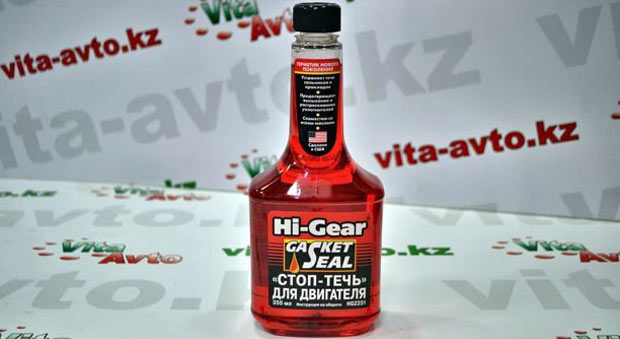

First, any oil stop leak must be used as soon as a leak is discovered. The longer a car is operated with leaking oil seals, the less likely the additive will work successfully.
Secondly, heavily worn oil seals that have cracks or critical wear of the working sponge will not be restored when using an additive. The same applies to damage to the shaft seat. In these cases, repairs will be required. The additive will most likely reduce the rate of leaks a little, but will not completely eliminate the problem.
Thirdly, if the engine has problems in the form of abundant sludge deposits, it is recommended to pre-flush the internal combustion engine. Stop leaks have a small negative effect: the active components settle to a small extent in areas potentially prone to sludge accumulation. Sometimes, if the engine is very dirty, the oil channels of the hydraulic lifters become clogged. Motors that do not have a contamination problem will not be harmed by these products.
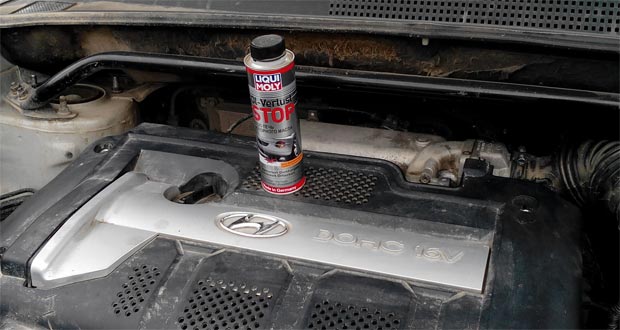

Reviews car owners
Car owners leave mixed reviews about sealing additives. On some motors, the leak really stops completely and for a long time. In other internal combustion engines, leaks remain. And sometimes their intensity does not even decrease.
This is usually caused by a violation of the conditions for the use of the additive. Motorists perceive a simple composition for softening rubber seals as a miracle cure. And they pour it into engines with physically destroyed seals, waiting for their restoration. Which, of course, is impossible.
Some car owners, in addition to eliminating oil leakage to the outside, note exhaust clarification. The car starts to smoke less. This is due to the fact that in addition to restoring the elasticity of the crankshaft and camshaft oil seals, the valve stem seals also soften. And if the car began to smoke less, then this indicates a previous leak through the valve seals.
Summing up, we can say this: stop-leak formulations are really effective when they are targeted and applied in a timely manner.


Watch this video on YouTube